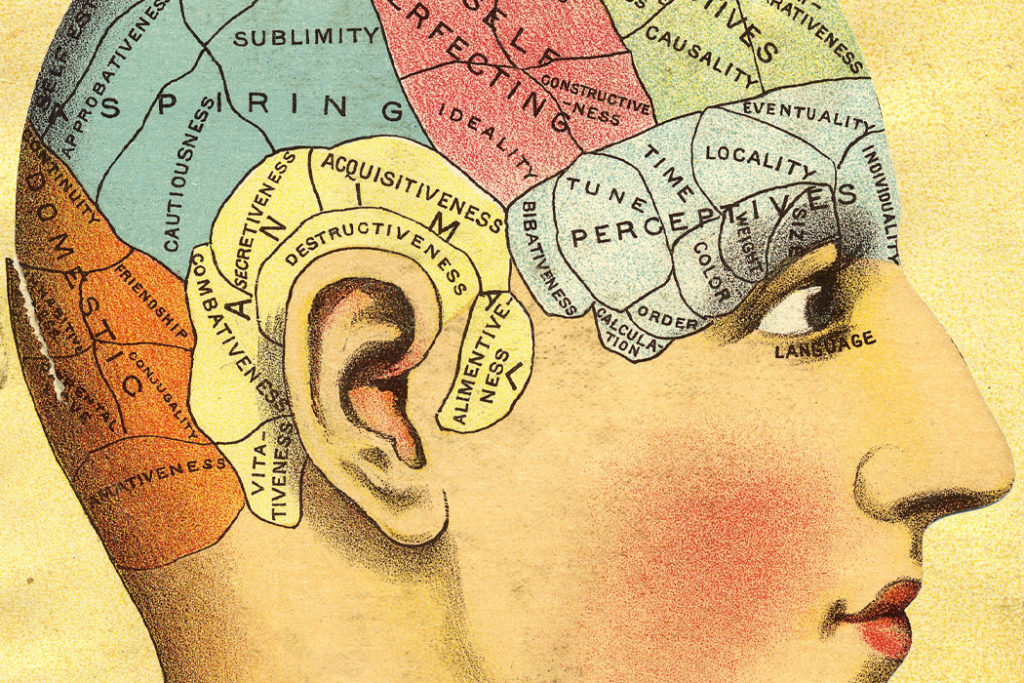On Phrenology’s Continued Relevance

People tend to get upset when I talk about how science is socially constructed and produces racist results when scientists who live in a racist society and don’t try to fight that in their science produce science. No, the second law of thermodynamics is not racist. That’s a law of nature, not a science. Science is a series of fields of human exploration of the natural world. Because it is done by humans, their findings are deeply impacted by the world in which they live, which means racism, misogyny, homophobia, etc. Perhaps the most notorious science of the 19th century was phrenology. Today, we call it a “pseudo-science” but really that’s kind of a dodge about how the scientific method produced explicitly racist science that ignores not only how racist results are produced by scientists today, but also that phrenology has never actually disappeared. Courtney Thompson, a historian of phrenology talks about the latter issue.
These sciences, “pseudo” or not, have real stakes. The embrace of mid-19th-century racial science helped justify the continued enslavement of Black Americans and the forced removal of Indigenous Americans from their lands. The embrace of eugenics led to thousands of women of color being sterilized against their will, including such figures as civil rights leader Fannie Lou Hamer.
A self-described adherent of phrenology helped to storm the Capitol. His embrace of this 19th-century science, which was so tied to racialized (and gendered, and classed, and ableist) assumptions about appearance and ability, signal the continued hold of these sciences on the modern mind. Phrenology and other 19th-century sciences impinging on race and identity have always been political in nature, and their influence continues to echo in modern political discourse. The ripple effects are widespread and ongoing, intersecting in unsurprising ways with right-wing political discourse.
Responding to a related development (the uses of facial-recognition software), Emma Bell asked me on Twitter, “Why is phrenology having a comeback?” As I suggest in my book, it isn’t. Phrenology isn’t having a comeback because it never left us. It shapes our language, assumptions, and prejudices into the present, and in so doing shapes our political discourse and realities. I don’t think we ever have abandoned phrenology — or ever will.
A month ago, I would have thought of this as an oddity of my historical subject, frustrated that people simultaneously dismiss the science I study as “pseudoscience” even as it keeps popping up in the news as “neo-phrenology.” But after the Capitol insurrection, it’s no longer amusing to me, and it shouldn’t be to anyone. The stakes are real, and high. After smashing into the nation’s Capitol, where will phrenology and other seemingly “dead” sciences show up (and take us) next?
When I used the facial recognition technology issue to discuss the inherent racism of science and technology, I wasn’t saying anything remotely controversial to anyone who knows the history of these issues. These are very real issues in both science and technology and until our studies of science and technology are explicitly and intentionally anti-racist in method and research, we will continue to create racist science.


